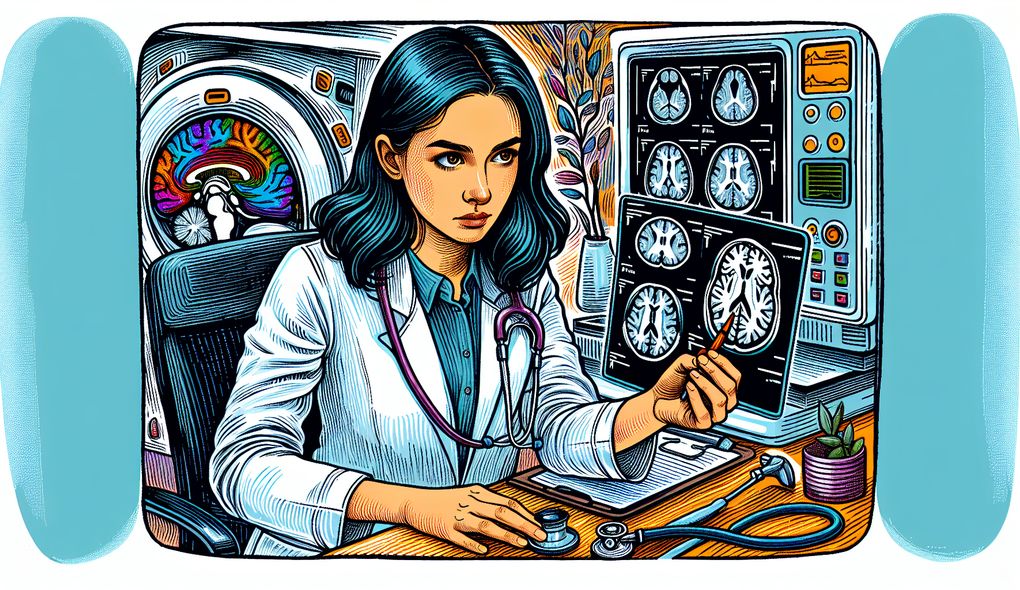What types of neurological disorders do Neuroscience Nurse Practitioners commonly encounter?
SENIOR LEVEL

Sample answer to the question:
Neuroscience Nurse Practitioners commonly encounter a wide range of neurological disorders. These may include conditions such as epilepsy, stroke, multiple sclerosis, Parkinson's disease, Alzheimer's disease, brain tumors, and spinal cord injuries. They may also deal with more rare conditions like Huntington's disease or amyotrophic lateral sclerosis (ALS). The Neurology Nurse Practitioner plays a crucial role in assessing and diagnosing patients with these disorders, developing comprehensive treatment plans, prescribing medications, and coordinating care with other healthcare professionals.
Here is a more solid answer:
Neuroscience Nurse Practitioners commonly encounter a broad range of neurological disorders in their practice. Some of the most frequently encountered disorders include epilepsy, stroke, multiple sclerosis, Parkinson's disease, Alzheimer's disease, brain tumors, and spinal cord injuries. They also often come across less common conditions such as Huntington's disease and amyotrophic lateral sclerosis (ALS). In their role, Neuroscience Nurse Practitioners perform comprehensive assessments of patients with these disorders, utilizing their in-depth knowledge of the neurological system and related diagnostic skills. They work closely with neurologists and neurosurgeons to develop and implement effective treatment plans, often prescribing medications and managing therapies for neurological diseases. Additionally, they play a vital role in educating patients and their families about neurological disorders and the appropriate management strategies.
Why is this a more solid answer?
The solid answer expands on the basic answer by providing more specific details about the most commonly encountered neurological disorders. It also emphasizes the role of the Neuroscience Nurse Practitioner in performing comprehensive assessments and collaborating with other healthcare professionals. The answer could be further improved by providing examples or scenarios of how the nurse practitioner would encounter these neurological disorders in their practice.
An example of a exceptional answer:
Neuroscience Nurse Practitioners encounter a wide array of neurological disorders as part of their practice. These disorders can include epileptic seizures of various types, ischemic and hemorrhagic strokes, relapsing-remitting and progressive forms of multiple sclerosis, idiopathic Parkinson's disease and parkinsonism, mild cognitive impairment and various stages of Alzheimer's disease, primary and metastatic brain tumors, spinal cord injuries resulting from trauma or degenerative diseases, Huntington's disease, and amyotrophic lateral sclerosis (ALS). In their role, Neuroscience Nurse Practitioners perform comprehensive neurological assessments, utilizing specialized diagnostic tests such as MRIs, CT scans, and EEGs to aid in accurate diagnoses. They work collaboratively with neurologists, neurosurgeons, and other healthcare professionals to develop individualized treatment plans, taking into consideration the specific needs and preferences of each patient. This may involve prescribing medications, managing therapies, coordinating rehabilitation services, and providing counseling and support to patients and their families throughout the disease trajectory. Furthermore, Neuroscience Nurse Practitioners actively participate in research studies to contribute to the advancement of neuroscience nursing practice and stay up-to-date with the latest treatments and advancements in the field.
Why is this an exceptional answer?
The exceptional answer expands on the solid answer by providing a comprehensive list of specific neurological disorders that the Neuroscience Nurse Practitioners commonly encounter. It also highlights the use of specialized diagnostic tests and the various aspects of patient care, including rehabilitation services, counseling, and support. The answer demonstrates a high level of knowledge and understanding of the role and responsibilities of a Neuroscience Nurse Practitioner.
How to prepare for this question:
- 1. Familiarize yourself with the most common neurological disorders encountered in neuroscience nursing, such as epilepsy, stroke, multiple sclerosis, Parkinson's disease, Alzheimer's disease, brain tumors, and spinal cord injuries.
- 2. Study the diagnostic tests used in the field, including MRIs, CT scans, and EEGs, to better understand their role in the assessment and diagnosis of neurological disorders.
- 3. Research the latest advancements in the field of neurology to stay abreast of new treatments and approaches to patient care.
- 4. Develop strong collaboration and communication skills, as interdisciplinary teamwork is essential in neuroscience nursing.
- 5. Continually seek opportunities for professional development and continuing education to ensure you are up-to-date with the latest neuroscience research and best practices.
What are interviewers evaluating with this question?
- Knowledge of neurological disorders
- Diagnostic skills
- Treatment planning
- Collaboration with neurologists and neurosurgeons

